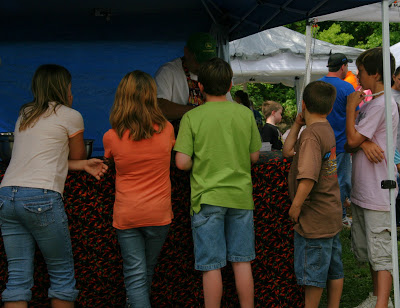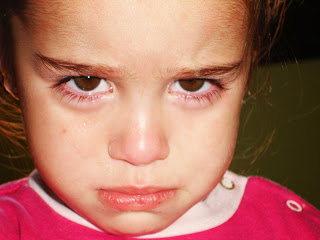Please leave your thoughts in the comments!
Author Archives: admin
The Cheese Stands Alone
 I hit a parenting low point the other day. I drove a piece of cheese to my son’s middle school. Just the cheese and I, buckled in safely, driving together across town to attend my son’s French 8 Mardi Gras party. I wasn’t invited, just the cheese.
I hit a parenting low point the other day. I drove a piece of cheese to my son’s middle school. Just the cheese and I, buckled in safely, driving together across town to attend my son’s French 8 Mardi Gras party. I wasn’t invited, just the cheese. Here’s the thing, none of us is all internal or external in our locus of control. Everyone forgets things occasionally. Everyone needs to cut themselves some slack once in awhile. No one deserves a terrible tragedy befalling them. But, if we protect our children from experiencing the consequences of their choices and actions, even their memory lapses, we are reinforcing as fact that they are not the masters of their destiny.
I personally respect and love my kids’ teachers because they rarely email me, but instead choose to empower my ‘tween and teen kids with their own school responsibilities. I think it takes courage for teachers to take on the complaining parent who still expects that our children be spoon-fed. It was up to us to spoon-feed our infant and to teach him/her to independently use a spoon. Teachers work hard enough, asking them to also overfunction as our child’s parent, is just too much to ask.
Lunch Letters
Courage Quote of the Day
“Loneliness, insomnia, and change: the fear of these is even worse than the reality.”
~ Mignon McLaughlin, The Second Neurotic’s Notebook, 1966
The Gate of Heaven and the Gate of Hell
Courage Book Review – The Wanderer
![The Wanderings of Odysseus: The Story of the Odyssey [WANDERINGS OF ODYSSEUS -OS]](http://ws.amazon.com/widgets/q?MarketPlace=US&ServiceVersion=20070822&ID=AsinImage&WS=1&Format=_SL160_&ASIN=B001TK6XFG&tag=lioswhi-20)
 A beautifully illustrated version of the story, The Adventures of Odysseus
A beautifully illustrated version of the story, The Adventures of OdysseusAre You Raising an Outy?
Firstly, the cool thing about locus of control is that it is one of those few areas where parenting really matters! It seems that locus of control is not a genetically-driven trait, but more a nurtured and learned personality adaptation. The goal in parenting is for children to develop an increasingly internal locus of control over time, combined with a flexibility to move along the continuum depending on life circumstances.
Given that a child’s sense of diminished control over his/her environment is associated with psychological vulnerability to anxiety in particular, it is imperative that parents coach their kids to really listen to their own inner thoughts, values, feelings, and body. The more children believe that they are active agents in the successes or failures of their lives—the more likely they are to take responsibility for their actions and develop the six types of courage.
We’re all likely to want to rescue our child at some point during their development: deliver a forgotten instrument to school, pick up their smelly laundry off their bedroom floor, or sell their raffle tickets for the baseball team fundraiser. But, here’s the thing: if we continue to be our child’s rescuer, he/she will be less prepared or emotionally, physically, morally, spiritually, socially or intellectually equipped to handle the challenges on the path ahead.
Trust me, you want your child to get the lesson the first time! Otherwise, you can be assured you’ll be learning it again and again and again until your child achieves the kind of independence and self-efficacy needed to grow up. My son only had to lock himself out of the house once to remember his keys for the next two years. My daughter only had to forget her instrument once for her to remember that violin for the rest of the year. Every time I overfunction and pick up the stinky socks at the same time I’m telling my son to do so, I’m turning him into an outy! Surprisingly, he doesn’t seem so motivated to pick them up himself because the invisible laundry fairy continues to magically do it for him?!

The startling news is that today’s college student favors an external locus of control. In other words, we may be dropping the ball as parents in preparing our kids to be powerful agents in their future success. Children and college students surveyed between 1960-2002 show that young Americans (by an astounding 80% increase) are more likely now than in previous generations to believe that the circumstances of their lives are controlled by outside forces instead of the result of their own efforts. Yikes!
Courage Quote of the Day
Courage Challenge of the Day
“There are no strangers here; Only friends you haven’t met yet.” ~ William Butler Yeats
What’s a true story from your life about a time you reached out to make a new friend or helped your child to do so?
The Rightful Heir
For the impact of fairy tales on intellectual courage, please read “Relativity.”









